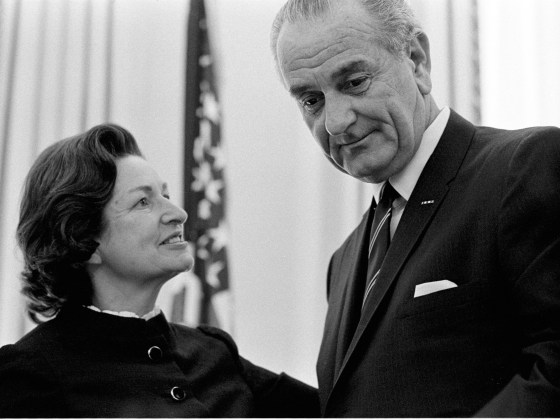The number of actual policies included in Donald Trump's convention speech was vanishingly small, but towards the end of his remarks, the Republican nominee did reference an idea most of the country probably knows very little about.
"At this moment, I would like to thank the evangelical and religious community in general who have been so good to me and so supportive. You have much to contribute to our politics, yet our laws prevent you from speaking your minds from your own pulpits. "An amendment, pushed by Lyndon Johnson, many years ago, threatens religious institutions with a loss of their tax-exempt status if they openly advocate their political views. I am going to work very hard to repeal that language and protect free speech for all Americans."
If you've been watching Trump closely of late, this wasn't the first time you heard him mention the "Johnson Amendment." In his truly bizarre remarks last weekend introducing Mike Pence as his running mate, Trump said, "We call it the Johnson amendment, where you are just absolutely shunned if you're evangelical, if you want to talk religion, you lose your tax-exempt status."
Even the new Republican Party platform references the policy: "Republicans believe the federal government, specifically the IRS, is constitutionally prohibited from policing or censoring speech based on religious convictions or beliefs, and therefore we urge the repeal of the Johnson Amendment."
And it's at this point, when people start to ask, "What in the world is the Johnson Amendment?" I've been covering this obscure fight for a while, so let's unwrap the controversy.
Under federal tax law, tax-exempt houses of worship are not allowed to intervene in partisan political campaigns. Ministries can obviously speak out on moral and spiritual issues of the day, and can even get involved in ballot referenda related to various policies, but churches and other houses of worship can't take steps to help (or hurt) candidates or political parties.
This law was created in 1954, thanks to the efforts of then-Sen. Lyndon Johnson, and for the most part, it hasn't been especially controversial.
But as the religious right movement became a more prominent fixture in Republican politics, the Johnson Amendment became problematic. Efforts to create a political machine involving pastors and congregations were stunted by the law: if a religious leader can't tell his or her congregation who to vote for without risking the ministry's tax-exempt status, the movement's potency has limits.
And so the religious right decided the Johnson Amendment has to go. It even came up with an argument that seems vaguely compelling at first blush: those who lead houses of worship should be able to say whatever they wish to their congregants, and it's not the government's job to intervene. The First Amendment's free-speech protections, the argument goes, should be applied to ministers in the pulpit.
What's wrong with that argument? Quite a bit, actually.
As we discussed a couple of years ago, when it comes to electioneering and tax law, houses of worship have effectively made a deal with the government: the pastors will enjoy the benefits of a tax-exemption, and in exchange, their ministry will be non-partisan.
Trump is saying he wants to scrap the deal: the churches should get the benefit of a tax exemption from the government, without any of the conditions.
As for the First Amendment, note that tax-exempt entities, including churches, have the option of getting engaged in partisan politics, endorsing candidates, and intervening in campaigns to their hearts' content -- but they can't do this while keeping their tax exemption.
Why does Trump want to change this? Basically because the religious right told him to. But why does the religious right want this? Because some on the right still dream of creating a church-based political machine.
The consequences could be dramatic. Imagine the campaign-finance mess that would exist if parties, candidates, and PACs could funnel campaign donations through tax-exempt churches, free of oversight.
My old friend (and former employer) the Rev. Barry W. Lynn, executive director of Americans United for Separation of Church State, said this week the idea would be "short-sighted, reckless and corrosive to religious life." He added, "The Republican platform seeks to turn America's houses of worship into miniature political action committees. I can't imagine a more disruptive idea for our nation's religious community or a real impediment to campaign finance reform."
